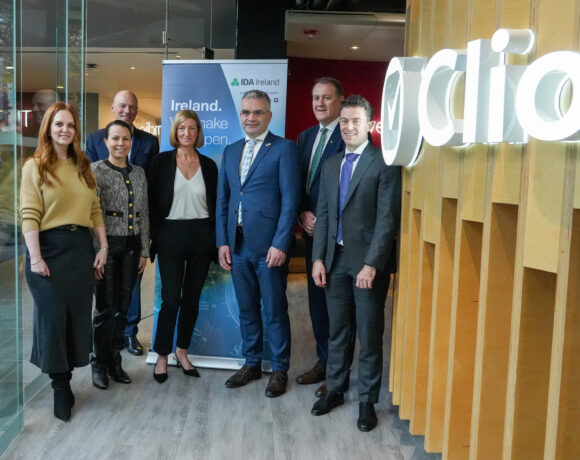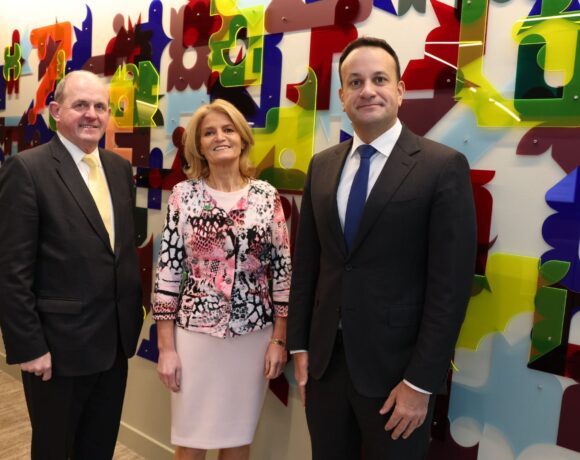Image courtesy of Flickr
One of the most iconic and distressing TV images of recent years came into our living rooms when David Attenborough in his Blue Planet series showed us the destruction being caused by the amount of plastic waste which had found its way to the oceans. This image, in many ways, provided the starting point in the pushback to this pollutant and the devastation it is causing in the marine environment. Protecting the marine environment is one of the drivers behind the European Union’s Single Use Plastics Directive which is due to become law in July of this year.
Our love affair with single use plastic (SUPs) products has grown in parallel with becoming a more “on-the-go” society. Some of the numbers are staggering: 22,000 disposable coffee cups sold every hour, and more than 60% of people buy their lunch ‘on the go’ with each lunch averaging four packaged items. The negative impact on our environment has been huge and the need to shift our collective mindset in relation to SUPs is now recognised globally. The Single Use Plastics Directive aims to deal with the items that represent in excess of 70% of the marine litter found on European beaches and in the marine aquatic environment.
Ireland wants to position itself to lead innovation in this area with clear policy incentives. These are some of the steps we’ll be taking:
Banning items from being placed on the market
The Directive will come into force on 3 July and from that date the following SUP items will be banned from being placed on the Irish market:
· Cotton Bud Sticks
· Cutlery
· Plates
· Stirrers
· Chopsticks
· Straws
· Polystyrene cups and food containers
· All products (not just SUP) containing oxo-degradable plastic
In addition, any beverage container (bottles, cartons, etc) up to three litres in size, that do not have their caps attached to the bottle, will be banned from the Irish market from 3 July 2024. Any plastic bottle which does not contain 30% recycled content will also be banned from January 2030.
Reducing our reliance on SUPs
In our Waste Action Plan for a Circular Economy we are committed to significantly reducing the amount of SUP cups and food containers we use and we will explore mechanisms to enable us to ban a further range of SUP items such as wet wipes and plastic sachets containing toiletries and food condiments.
Our initial focus will be on the estimated 22,000 coffee cups that are disposed of every hour in Ireland. This is entirely avoidable because reusable alternatives exist and the role of personal choice is crucial in effecting the necessary transition.
We want to nudge consumers towards making the right choice through the following measures:
· A levy, similar to the plastic bags levy, will be introduced in 2022 on all single use (including compostable/biodegradable etc) coffee cups.
· From 2022 we will seek to ban the unnecessary use of disposable cups (such as sit-in cafes)
· From 2022 we will also oblige retailers to give a price reduction to consumers who use reusable cups.
· We will trial the elimination of coffee cups entirely in selected towns and suitable locations, with the ultimate aim of introducing a full ban.
· Supporting festival or other large scale event organisers, through the licencing or planning systems, to move from single use to reusable products.
Making Producers more Responsible
In a truly circular economy, producers must be responsible for the sustainability of the products they place on the market. Extended Producer Responsibility (EPR) is an environmental policy approach in which a producer’s responsibility for a product is extended to the post-consumer stage of a product’s life cycle. In Ireland we have successfully used this approach to deal with a number of waste streams including waste electrical equipment, batteries, packaging, tyres and farm plastic. Based on this success we will introduce new EPR schemes for a number of SUP products:
· Tobacco products containing plastic filters (by 5 January 2023)
· Wet wipes (by 31 December 2024)
· Balloons (by 31 December 2024)
Although not technically an SUP item, we will also be introducing a scheme for fishing gear containing plastic by 31 December 2024, in recognition of the amount of it that ends ups as marine litter.
Introducing a Deposit Refund Scheme
The Waste Action Plan for a Circular Economy commits to the introduction of a Deposit and Refund Scheme for plastic bottles and aluminium beverage cans by Autumn 2022. The response to the public consultations in relation to this showed that there is a huge public appetite for the introduction of this scheme at the earliest possible date.
Tackling SUPs is not just about the prevention of waste, and the circular economy transition needs to be considered more broadly as a key enabler of climate action across all sectors. Major opportunities are there for Ireland to adopt and promote practices and actions that reduce resource consumption to help achieve our Circular Economy plans. It is estimated that $80-$120 billion is lost annually to the global economy through the loss of plastic packaging material – only 5% of material value is retained for further use. Apart from the environmental benefits (including greenhouse gas savings) cutting our SUP usage would reduce this overall loss by keeping valuable material resources in circulation longer and pushing manufacturers towards value capture through reduced packaging or the use of fully recyclable, reusable/returnable packaging.

Big changes are coming but if we embrace them we can gain real economic, environmental and societal benefits and place Ireland at the leading edge of the circular economy transition. Remembering to bring your reusable cup with you the next time you want a takeaway coffee is a great place to start!
Source:
Philip Nugent Assistant Secretary at Department of Commun, Climate Action & Environment













